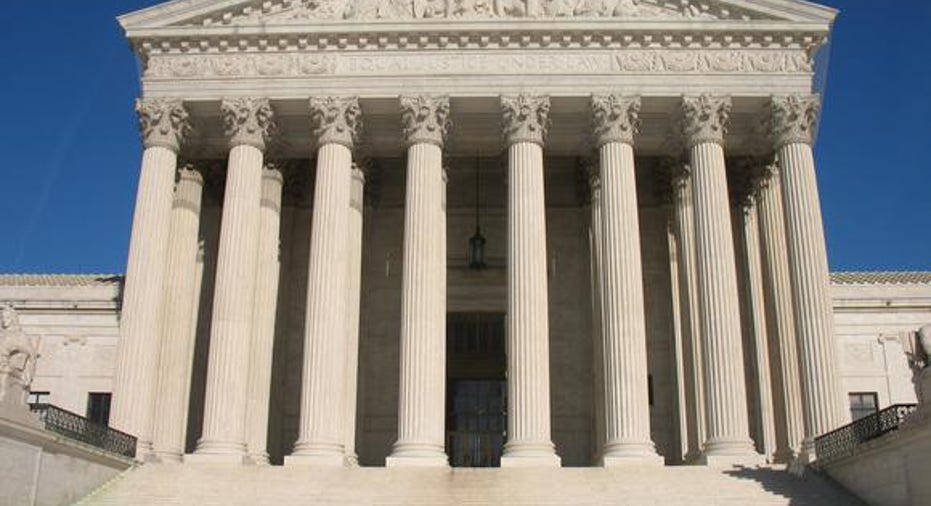Will This Supreme Court Decision Cost Altria Group Much More Than $25 Million?

U.S. Supreme Court. Image source: Kjetil Ree via Wikimedia Commons.
The tobacco industry has a long history of fighting litigation battles connected to cigarettes and other products, and part of the reason why Altria Group and its peers have produced such strong returns for investors is that they've largely been successful in fending off major damages awards. However, some investors are growing more concerned that the lawsuit tide might be turning against Altria, and recent decisions have some troubling implications for the industry. In particular, one decision earlier this month from the Supreme Court is just the latest challenge to Altria's business, and some fear it could open the floodgates to further losses ahead.
The details on Altria's loss
On May 16, the Supreme Court said that it would choose not to hear an appeal from Altria's Philip Morris USA subsidiary to challenge a jury verdict in an Oregon court. The underlying case involved Michelle Schwarz, who according to filings with the court died at age 53 in 1999 of a lung-cancer induced brain tumor.
According to the plaintiff in the case, surviving spouse and estate personal representative Richard Schwarz, Michelle had started smoking when she was 18 and decided to start smoking low-tar cigarettes at the age of 30. The complaint alleged a defective product claim, negligence, and fraud, arguing that the Altria unit misrepresented health claims concerning its Merit brand. In particular, one filing argued that Altria had a "reckless and outrageous indifference to a highly unreasonable risk of harm ... by selling light cigarettes as safer and as an alternative to quitting smoking."
A long litigation battle ensued, including a first trial, an appeal that ordered the lower court to retry the case on certain issues, and the subsequent second trial. Eventually, an Oregon jury decided in favor of the plaintiff and awarded a $25 million verdict, including punitive damages. In upholding that verdict after an Altria appeal, an Oregon appeals court made comparisons of Altria's behavior to criminal manslaughter.
Procedurally, Altria sought Supreme Court review of the Oregon case on the basis of certain jury instructions. By choosing not to hear the case, the Supreme Court left the verdict intact, and Altria's ability to seek further judicial review on that particular issue is limited.
Is Altria at risk?
The Schwarz case is just one of several problems that Altria has faced recently. At the company's annual shareholder meeting Thursday, Massachusetts shareholder Edward Sweda talked to Altria CEO Marty Barrington about several other adverse decisions against the tobacco giant.
For instance, in March, the Florida Supreme Court made two decisions against Altria. One involved the widow of a smoker who had died of lung cancer and allowed a punitive damages claim based on strict liability and negligence claims. The second decision allowed a smoker who had received an official diagnosis after a cut-off date specified in a previous class action nevertheless to make a valid claim as a member of the class. Later, in April, Connecticut's Supreme Court interpreted a long-standing statement in tort law against the company, arguing that long-held legal principles don't prevent product liability claims against tobacco companies. The result was similar to one that a Massachusetts court had reached recently.
Barrington responded to Sweda's comments by acknowledging the risk but defending Altria's track record. "The company has done quite a good job of managing those risks," the CEO said, and "we could go down the other side of the ledger and talk about all the litigation successes we've had." In particular, one case involved a jury finding in favor of the Philip Morris USA unit in less than an hour.
In the end, investors have to decide for themselves whether they're comfortable with the legal risks that major players in the tobacco industry face every day. In Barrington's view, those risks have come down significantly compared to the heightened state of alert that Altria and its peers had to deal with throughout much of the 1990s and early 2000s. As attitudes change among potential jurors, however, Altria will have to remain diligent in order to stay ahead of the lawsuit curve and manage its litigation risk in a prudent way going forward. If it fails, then the cost of decisions like the one in the Schwarz case could dramatically exceed the $25 million verdict.
The article Will This Supreme Court Decision Cost Altria Group Much More Than $25 Million? originally appeared on Fool.com.
Dan Caplinger has no position in any stocks mentioned. The Motley Fool has no position in any of the stocks mentioned. Try any of our Foolish newsletter services free for 30 days. We Fools may not all hold the same opinions, but we all believe that considering a diverse range of insights makes us better investors. The Motley Fool has a disclosure policy.
Copyright 1995 - 2016 The Motley Fool, LLC. All rights reserved. The Motley Fool has a disclosure policy.



















